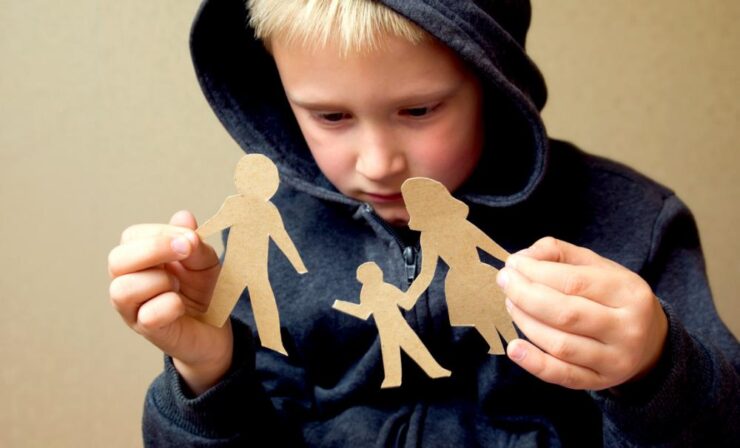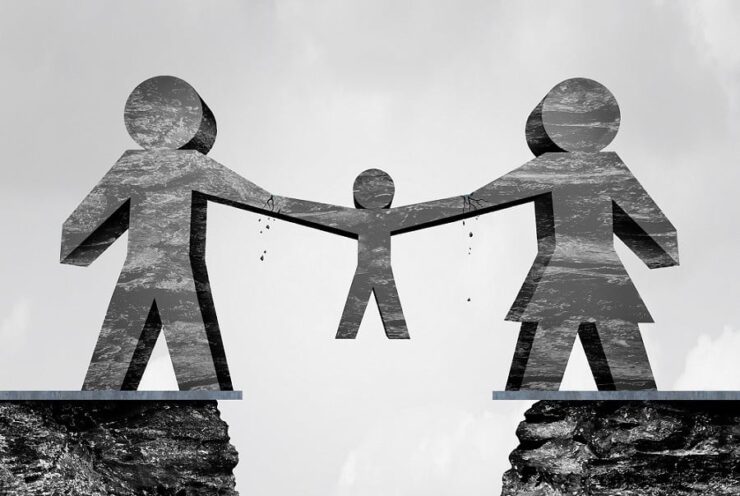When a marriage between two individuals ends, parents should decide where the minor children should live after their divorce. Details regarding the noncustodial parent’s visitation rights to meet their children, medical care the kids should get, and any other issue the court deems fit for the children’s welfare and upbringing.
As per law, even fathers have equal custody rights of their children. Men’s rights law firm ensures the court system will treat fathers equally. Whether it is a legal case regarding a cheating spouse, divorce, or getting professional advice regarding custody rights of kids, any other minute particulars about the issue will get appropriately looked into.
Child Custody
Child custody is the legal term used per the country’s prescribed law, and it means managing conservatorship. It helps recognize the relationship between the minor children and parents or guardians. There are two types of custody regarding children, they are
Physical Custody

Physical custody of children means the parent or the guardian receiving it should provide for the needs of children at home.
This type of custody is often given to one parent, whereas the other can get visitation rights to meet the child. But sometimes, the court issues joint custody of the children to both parents.
In this case, the children can spend equal time at each parent’s home, which should be agreeable to both parents.
Legal Custody
Legal custody is the right given to a parent or guardian to engage in decisions important for raising a child. It also includes decisions regarding which religion the child should follow, schools to join, after-school activities, medical care, and other activities for the child’s development.
The family law courts want to encourage both parents to get actively engaged in the upbringing of their children, and they provide joint legal custody.
Determining Legal Or Physical Custody

The family court in the country prefers to involve both parents in raising their children. Nowadays, it is common for the court to grant joint legal custody unless there is enough evidence for the court to determine that one among the parents may pose a danger to a child.
The danger a child poses from a parent could be regarding domestic violence, substance abuse, or any other action of a parent that will put the child’s life in harm’s way. The court will check the records of both parents regarding this matter.
In most cases of custodial rights, parents agree to all the terms as per law to avoid court mediation. However, the court does evaluate the agreement terms of child custodial rights to ensure there has been no unwarranted influence, force, or any other ill-suited conduct from any of the parents.
For those navigating complex legal decisions, securing the right legal support can be essential. Whether you need guidance on custodial rights, estate planning, or securing your family’s future, click here to explore expert legal services that can provide the support you need.
Regarding physical custody, every state places the child’s best interests while considering the child’s parental control. These best interest of the child laws vary from state to state depending upon the issues in a legal case.
Common Factors Considered By The Court
A few of the common factors considered by the court include,
- The gender and age of children are essential factors.
- They ensure the parent and child’s mental and physical health is good.
- The child’s connection with both parents before the divorce procedure. Along with the capability of each parent to raise the child in a guided and disciplined way.
- The financial capability of parents gets taken into consideration. It helps determine whether the parent can meet the child’s needs regarding home, clothing, and any other medical expenses that may incur.
- Whether custody of the child that the court considers granting to one parent will affect the child’s schooling, home, community life, and any other factors.
- The way each parent lives and whether this lifestyle causes any risk to the child.
- The child’s education will get affected due to the change in residence.
- In a few states, if the child’s age is between twelve and sixteen, the child’s preference to stay with which parent gets considered.
- Concerns regarding domestic abuse, illegal activities, substance abuse, or any other parental behavior that could affect the child’s well-being will get considered while giving one parent complete physical custodial rights. It could forfeit the visitation right to the noncustodial parent, or it could be limited to supervised visitation.
Father’s Rights Regarding Child Custody

Till the end of the last twentieth century, courts considered mothers fitter to raise minor children. It meant the mother usually got the child’s physical custodial rights.
In the last fifty years, the family court started recognizing the equal custodial right of fathers. It allowed divorced fathers to have more involvement in the upbringing of their children.
As per law, the rights of a father include,
- The right to fair-minded parental time.
- Right of consultation before the adoption of the child.
- Right to take time off from work to raise the child.
A father can ask the court for a sole or joint physical custodial right. If the court grants the father physical custody, the father can guide and direct the minor’s behavior and prevent the mother from interfering in the parental duties.
In the case of physical custody, the father has the right to receive child support payment from the mother.
The court may grant the father physical custody of the child in cases that include

- There is enough evidence to prove that the mother has abandoned the child or does not have the proper skills to raise the child.
- Evidence proves that the mother has been mentally, physically, or emotionally abusing the child or any other household member.
- Suppose the mother is prone to substance abuse, sexual misconduct, and other matters affecting the child’s upbringing.
- Enough evidence proves that the child’s life is in harm’s way due to the illegal activity of the mother at home.
- The father can ask the mother for sole physical custody, and if the mother approves, the court will consider the petition before approval.
- A father could ask for sole custody of the kids during the divorce proceeding or even submit a petition after the final divorce decree. The court will look into the evidence before making a ruling.
Conclusion
With the exceptions of the states of Massachusetts and Puerto Rico, all other states have adopted the Uniform Child Custody Jurisdiction and Enforcement Act of 1997.
It is a general rule for the court to set forth the terms regarding child custody and parental visitation rights. It also specifies the date and number of times the noncustodial parent could visit the child.
Without a court order, the custodial parent cannot deny the visitation right of other parents even if that parent is negligent in paying the child support amount stipulated by the court. Any violation of the court order could face financial penalties and jail time.

